SELF MADE: INSPIRED BY THE LIFE OF MADAM C.J WALKER (Netflix, 2020)
The inspiring story of trailblazing African American entrepreneur Madam C.J Walker who built a haircare empire that made her America's first female self-made millionaire.
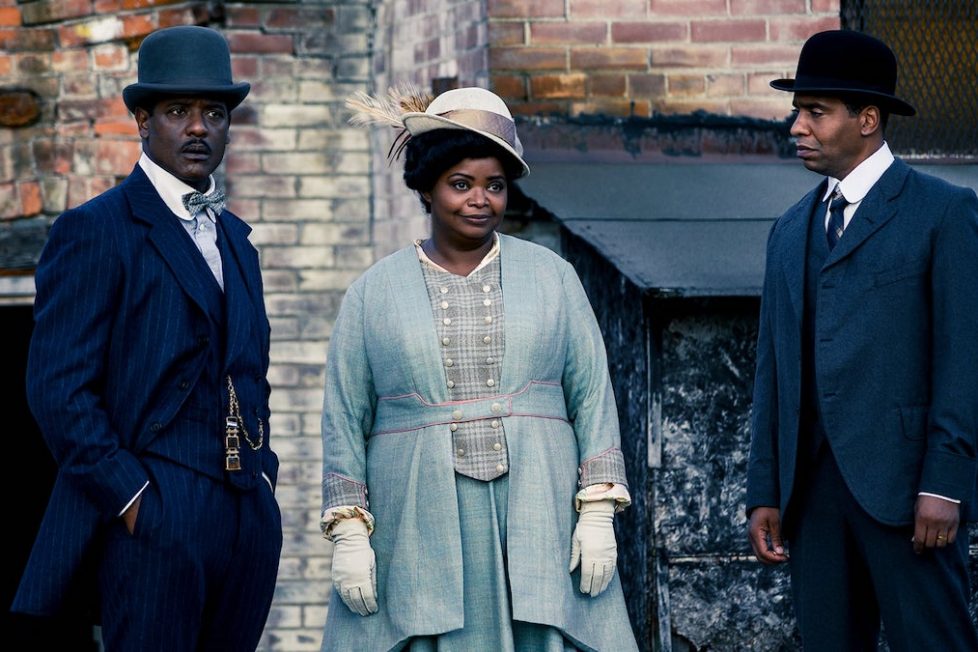
The inspiring story of trailblazing African American entrepreneur Madam C.J Walker who built a haircare empire that made her America's first female self-made millionaire.


While visiting Indianapolis last year, I stopped by the Indiana State Museum and saw a display devoted to Madam C.J. Walker—America’s first self made female African American millionaire. It was the first time I’d heard of this incredible woman. At the turn-of-the-century, Walker built a successful haircare company that catered specifically for black women and ethnic hairstyles. Just reading the museum display on her life was inspiring, so it’s no wonder Netflix’s recent biographical drama about her life was a moving depiction of female empowerment, determination, and hard work.
This limited series stars Octavia Spencer as Madam C.J Walker, or Sarah Breedlove (her maiden name). Spencer’s brilliance as an actress shines through Sarah’s insecurities, vulnerability, and tenacity. In the first episode, Sarah does unforgiving work laundering clothes for other people but her life is turned around when one of her clients, Addie Monroe (Carmen Ejogo), notices that Sarah’s hair’s falling out. Addie offers to care for Sarah’s hair for free with her Magical Hair Grower —something she invented and is trying to market to other black women. The product works miracles for Sarah’s hair and, in appreciation, Sarah asks Addie to help sell her product… only for Addie to turn her down , citing that Sarah doesn’t have the ‘right look’ for a saleswoman.
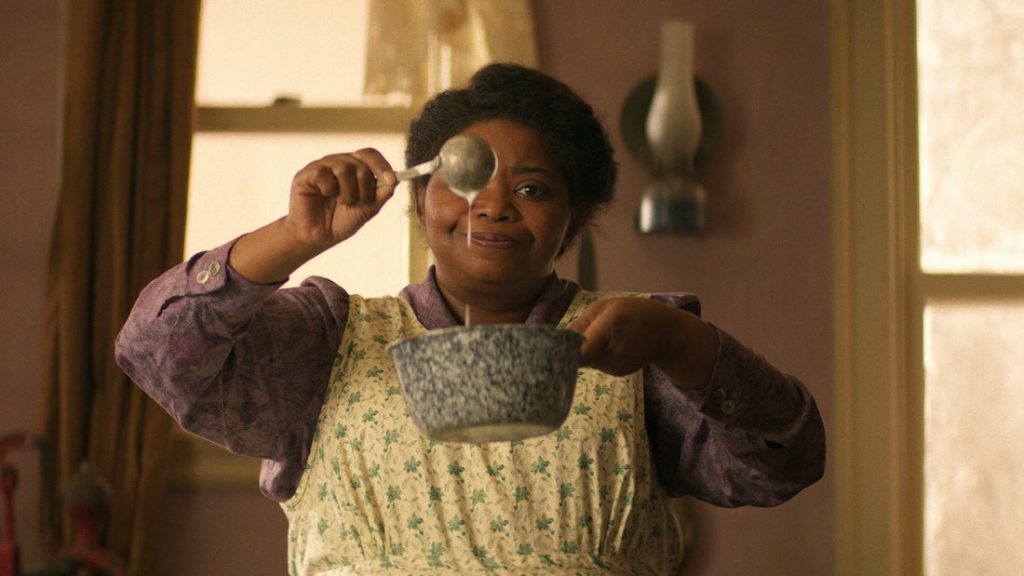
The series brings into play a variety of conflicts which are readily understandable : men’s insecurities when confronted by a strong woman, disenfranchised African Americans fighting for rights in society, and plain old greed and selfishness. But the relationship between Sarah and Addie forms the biggest conflict in the story, and it’s aggravated by Sarah’s struggle with self-confidence. “Hair is power” Sarah states, and through better maintenance of her hair, she boosts her self-esteem. However, Addie’s dismissal of Sarah as a saleswoman touches on Sarah’s insecurities over her own beauty and, more importantly, the beauty in the colour of her skin because Addie’s of mixed race and has lighter skin than Sarah. This conflict in perception within the African American community at the time (that lighter skin meant you were more beautiful ) was a surprising insight into the insidiousness of racism . Even people within a race harbour prejudices against their own. While Addie plays the main villain in the story, once her company competes with Sarah’s there’s a constant reminder throughout that Sarah must also battle her own anxieties about the way she looks.
The illustration of Sarah’s thoughts and ambition is done through small fantasy segments over the miniseries’ four episodes. These visuals are seamless and perfectly encapsulates her mentality. For instance, the contest for success between Addie and Sarah is shown interstitially as a boxing match and Sarah’s triumphs as a choreographed dance number. And every obstacle and set back shows to Sarah what she once was—“ugly” and unloved. I felt this approach to illustrating Sarah’s story elevated the narrative and created a wonderful whimsy in the serious drama of a woman’s rise to the top.
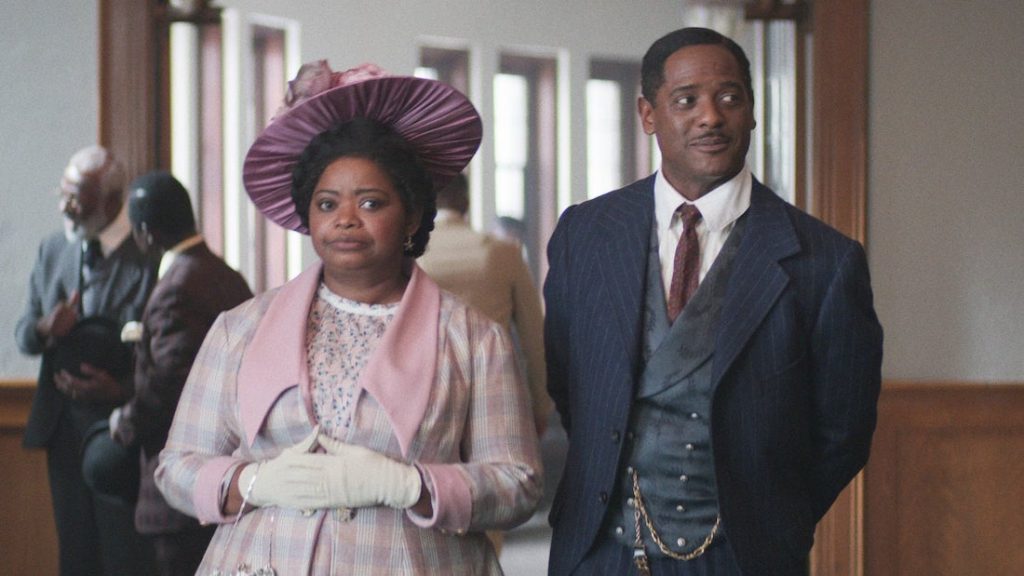
Once Sarah embarks on her ambitious plan to provide an important service to her community, the drama’s not so much in whether Sarah will be a success (we all know she will be) but in how she deals with her family’s shortcomings and the frailty of love. Sarah’s husband, Charles James Walker (Blair Underwood), is at first extremely supportive as a partner in her business, as his ad sales experience helps her develop her company… but her constant reminders that it’s “her” company and her insistence in representing it to prospective male investors undermines her husband’s role and erodes his ego and masculinity. The gradual unravelling of their relationship isn’t surprising, but it’s affecting . There’s no doubt Sarah is capable and intelligent, but it was sad to see her dismissive of her spouse’s well-intentioned efforts. It shows that being likeable wasn’t as important to her as being strong and successful and, despite Sarah’s harsh judgments, her instincts were always right.
Sarah’s daughter, Leila (Tiffany Haddish), illustrates a beautiful mother-daughter dynamic —- sometimes contentious but always loving and supportive. Haddish is wonderfully restrained here compared to her better-known roles and brilliantly portrays a devoted daughter looking to find her own happiness. Her first marriage to John Robinson (J. Alphonse Nicholson) is a short-sighted attempt to pacify her mother’s insistence that she settles down, and John’s laziness and self-entitlement becomes an issue when he joins the family business. But Leila gradually starts to understand herself better and uses her insight to help grow the company. Female empowerment is rightfully a strong theme in Self Made and even leads to a fictitious addition to the biopic where Leila falls in love with another woman. The real-life Leila supported queer people when she operated her mother’s store in Harlem, and this relationship in the show showcases how Leila’s generosity and liberality was an asset to the brand.
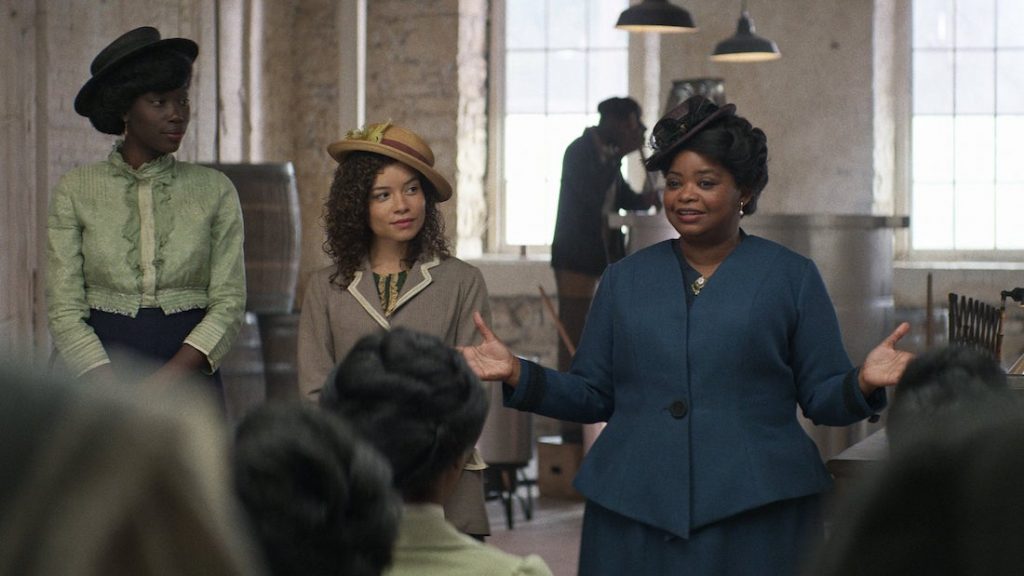
Legacy is the major theme of the finale, and while Madam C.J Walker’s strong business acumen and success was an inspiration to a generation of black women, the miniseries highlights the principles Sarah advocated in the importance of creating opportunities for women and self-care for confidence. The antagonistic relationships that impede Sarah’s success are resolved in a way that shows Sarah’s growth when she realises the lives of individuals are more important than fortune and distinction. The series begins with Sarah trying to connect and appeal emotionally to the women around her through their shared experience with hair, and it ends with Sarah’s contentment in the happiness of the women she has supported and uplifted throughout.
The miniseries is “inspired by the life” of the protagonist so there are many liberties taken with the story, plus the drama is heightened to show that her life and her success wasn’t easy…. but Madam C.J Walker’s story is a fascinating one and the message of the series is a stirring tribute to the power and strength of women who work together.

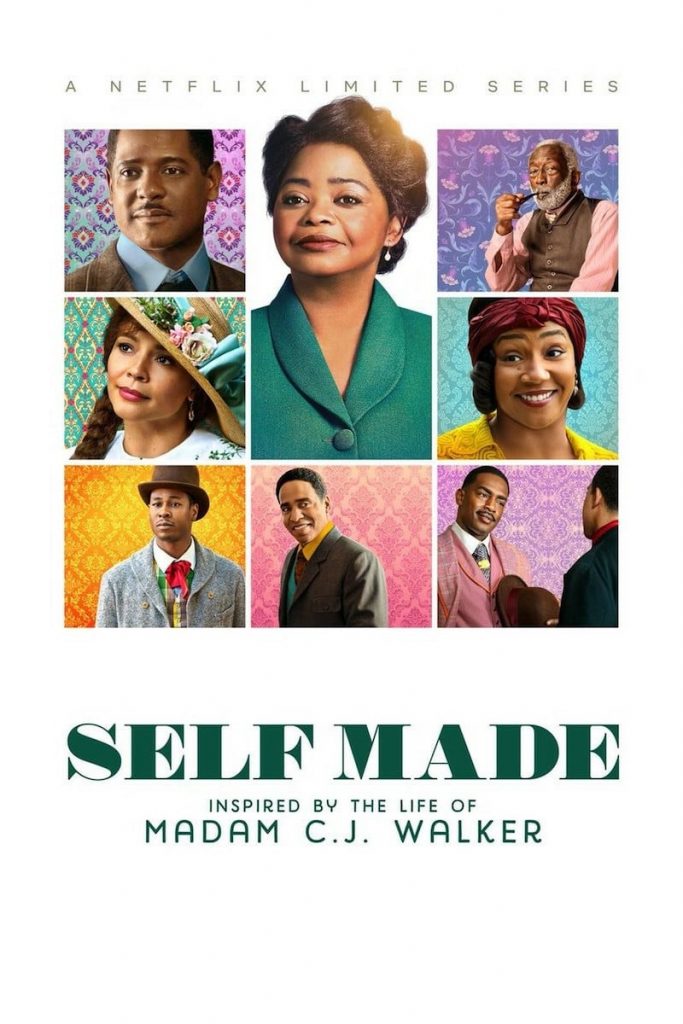
writers: Nicole Jefferson Asher, Elle Johnson, Janine Sherman Barrois & Tyger Williams (based on the novel ‘On Her Own Ground’ by A’Leila Bundles)
directors: DeMane Davis & Kasi Lemmons
starring: Octavia Spencer, Tiffany Haddish, Carmen Ejogo, Kevin Carroll, & Blair Underwood.
